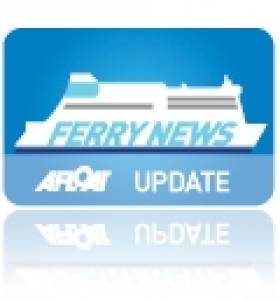Displaying items by tag: Eamonn Homes
Award Winning Stena Line Look Forward to New Northern Route
"We are moving into a very important time for Stena Line's operation between Northern Ireland and Scotland. On November 21 we are scheduled to start our new Belfast to Cairnryan service which will also see the introduction of two new vessels, Stena Superfast VII and Superfast VIII, the largest ships every to have sailed between Northern Ireland and Scotland," he continued.
Stena Line's switch of Scottish terminal from Stranrear to the new purpose built facility in Cairnryan which is some 8-miles closer to the open sea along Loch Ryan will reduce sailing times by 35 minutes down to 2 hours 15 minutes.
The 30,285grt Stena Superfast VII and Superfast VIII sisters can carry 1,200 passengers, 660 cars and 110 freight-unit / trucks. In addition they have a novel Nordic Spa facility incorporating a sauna and Jacuzzi.
The 206m pair will compete with rivals P&O (Irish Sea) which operates also from a neighbouring terminal in Cairnryan where another pair of sisters European Highlander and European Causeway provide 2-hour sailings to Larne.
Currently Belfast-Stranraer sailings are served by conventional tonnage ferries Stena Caledonia and Stena Navigator which lost engine-power on 14 October, to read more click HERE.
In addition fast-sailings are run by the expensive to operate HSS Stena Voyager which manages a faster crossing time on the existing route by shaving 15 minutes off the link between Loch Ryan and Belfast Lough. In 2008 the terminal in Belfast was relocated downriver to Victoria Terminal 4 (VT4) on the eastern edge of the port from the older inner-city terminal at Albert Quay.
Stena are to lease the 'Superfast' pair for three years from Scandinavia operator Tallink and they are to directly replace both the HSS and conventional ferries.
























































